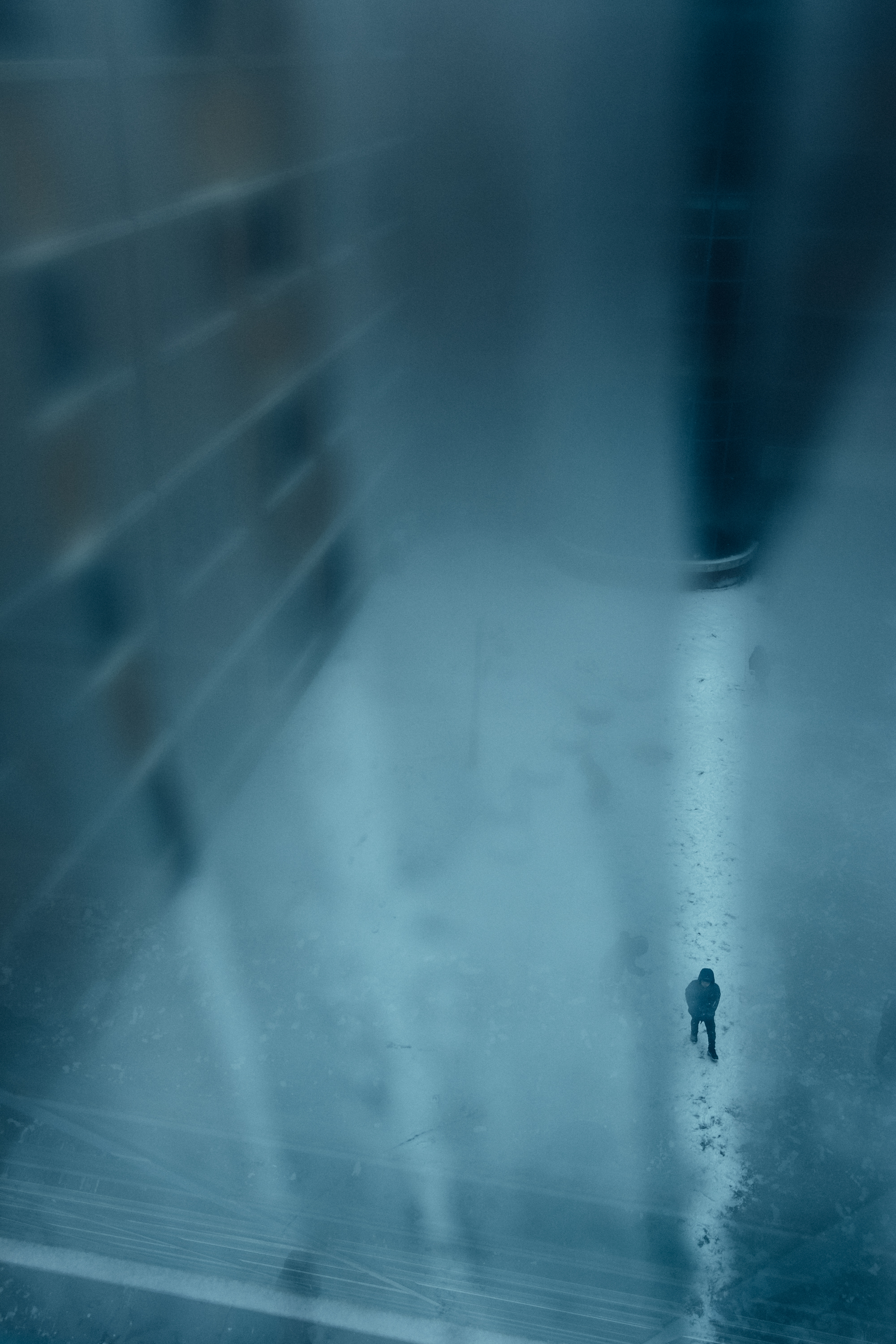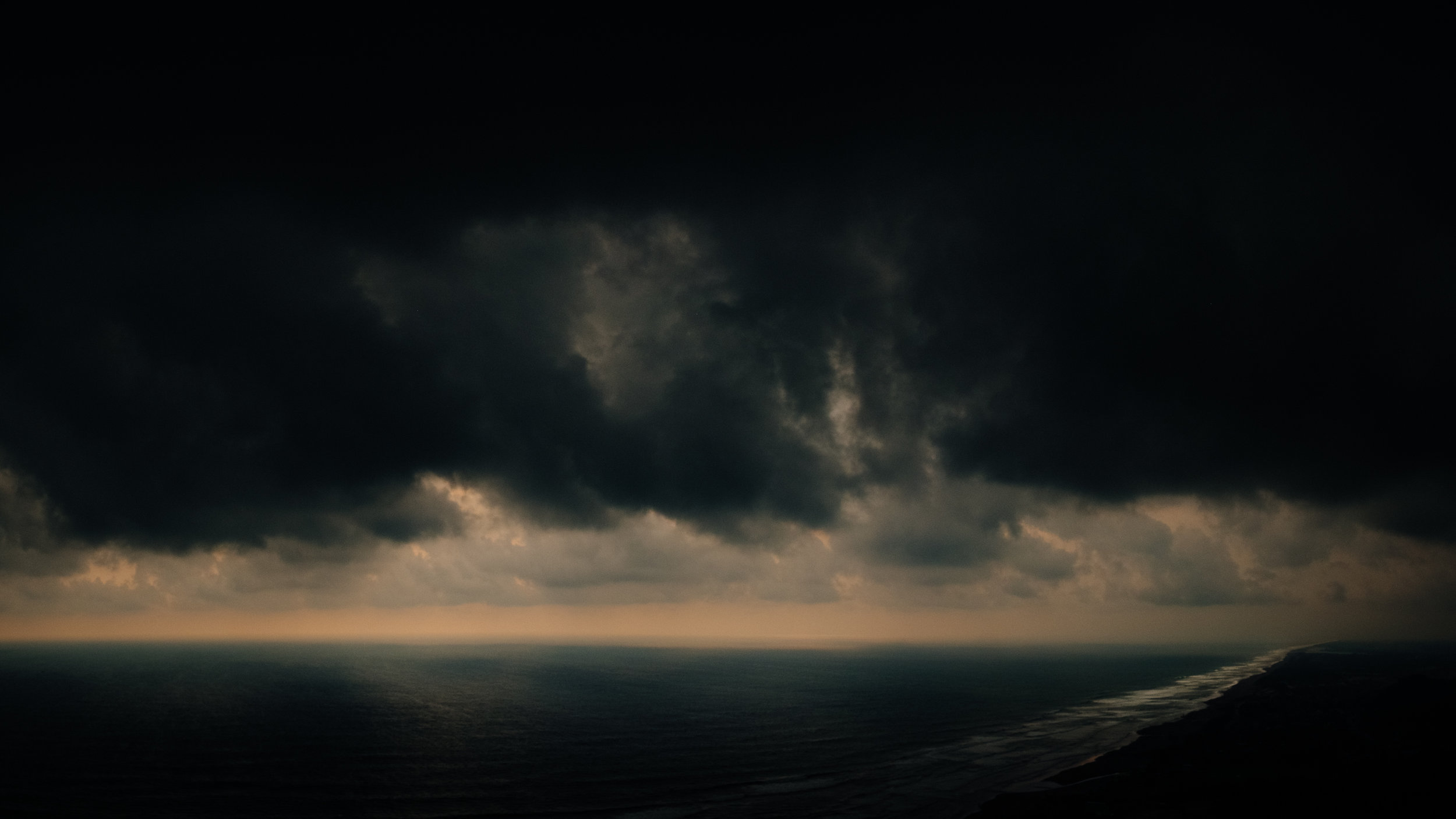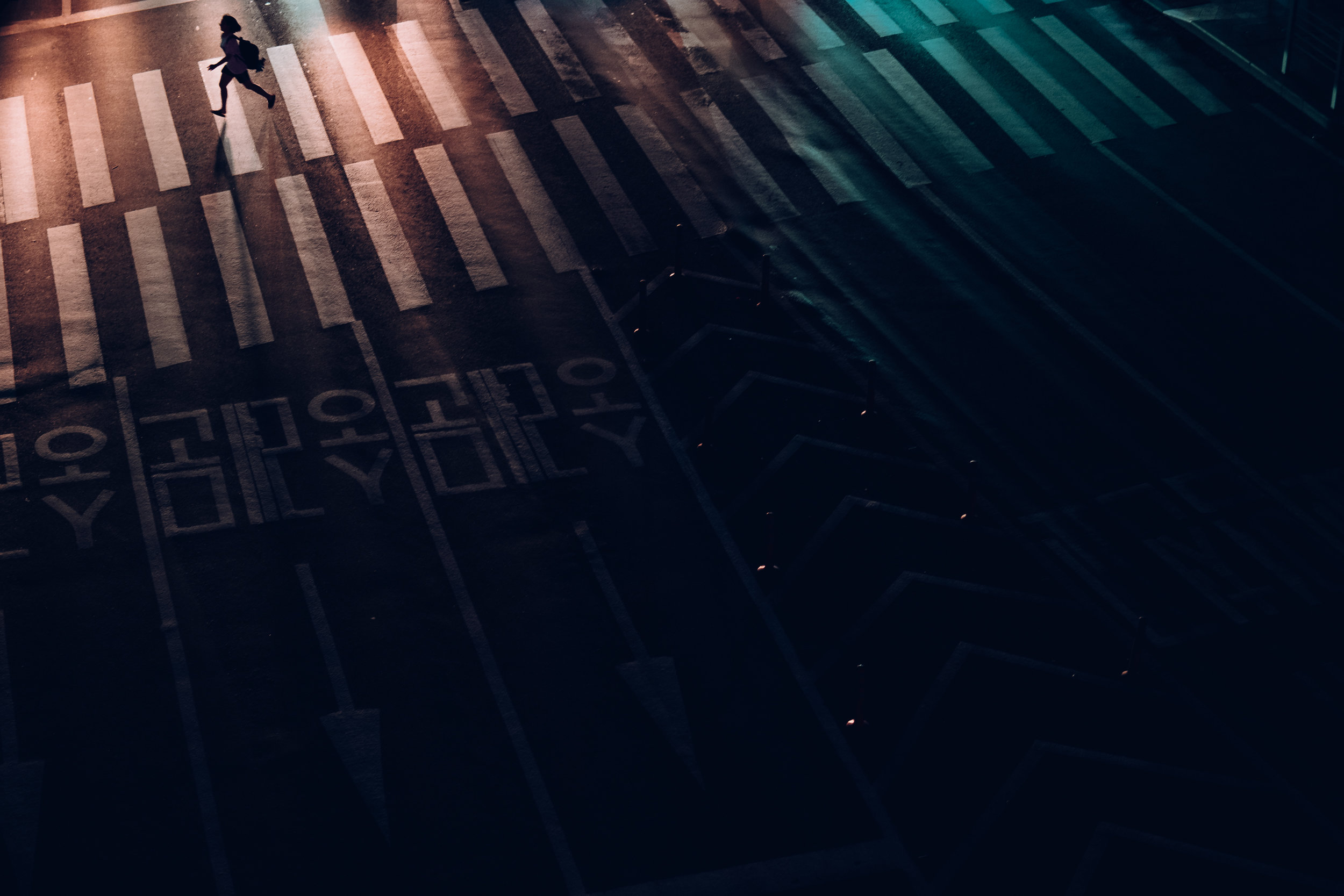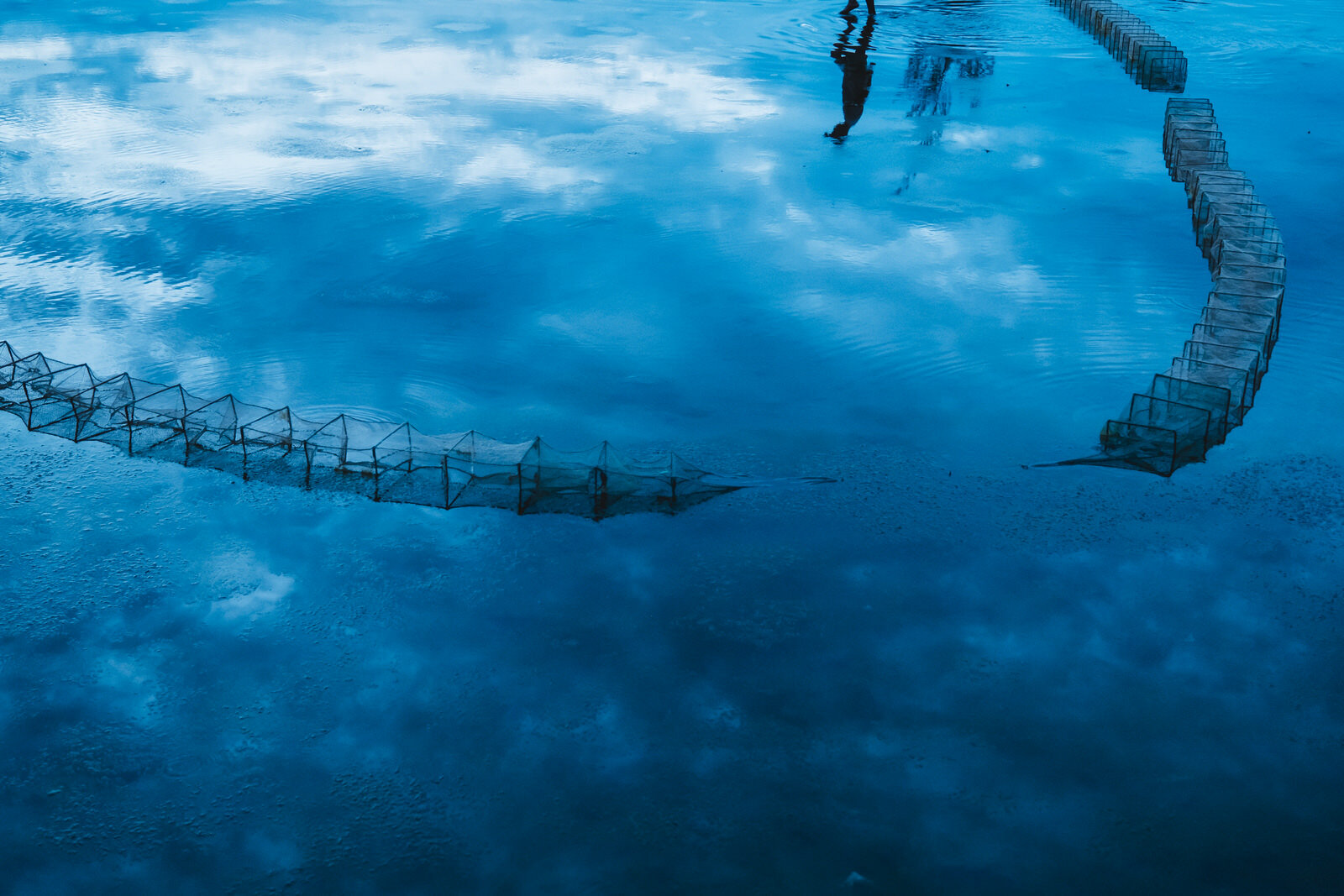I know Marco Devon’s work when I see it. While the range of his subjects is as varied as his photographic influences, Devon’s style is unwavering. Characterized by silhouettes, minimal subjects, deep shadows, and exquisite tones, Marco’s images leap from the backdrop of the seemingly endless deluge of images I see daily. From family portraiture to wedding photography, Marco Devon has the ability to seamlessly incorporate his stylistic attributes to every genre he tackles as a professional photographer. While his efforts for consumer-level portrait clients are top-notch, I am most drawn to his travel work.
With sweeping and breathable compositions, Devon’s travel photography offers a sense of place but allows for wider interpretation. He blends mystery into his work which allows viewers to concentrate less on destination and more on experience itself. This ability to break from traditional travel photography is refreshing and is the key element that draws me back to Devon’s galleries over and over again.
When I muse over Marco Devon’s work, I am inspired to push the limits with my own travel photography and look towards the transcendental space that Devon has already found in his few years as a professional shooter. Marco was kind enough to sit down with me and answer a few questions about himself, his work, and his evolving journey as a photographer. Read on to find out more about the man behind the lens.
You have ten seconds to describe yourself. Go…
I'm a South African living and working in South Korea. I've been here for almost eight years now. I currently specialize in portraiture, family, wedding, and travel photography. I love watching train videos on Youtube. Trains drivers in Switzerland mount GoPro's on their dashboards and upload them. Judge all you want. It's incredibly therapeutic.
What are your passions outside of the photography world?
If by passions, you mean inspiration, then music is a huge one. Quite often, music is what drives the conceptualization process. I've gravitated towards film a lot recently, too. I enjoy studying angles, light, and character development. With this virus lockdown, I've been able to catch up on many films.
You grew up in South Africa. Can you tell us a bit about that experience? How do you feel that those formative years influenced you as a photographer?
I come from Cape Town, and that means a few things. Mountains in every direction and two oceans that surround the city. I traveled to school by bus every day, a 25-minute ride. Twenty of the twenty-five minutes was spent staring at the seaside. At school, the classroom windows had views of the sea and mountains. I think this is where I developed a fondness for daydreaming.
Culturally and politically, things are rather complicated in South Africa. Trevor Noah and I share the same ethnicity so you might already have heard a bit about the context of South Africa. As coloreds, a socially accepted term used in South Africa to refer to mixed-race people, there is a conflict surrounding the identification of our traditions, cultural norms, and even cultural identity. The apartheid did a great job of stripping us of that. I think photography helped fill a lot of the gaps for me personally.
Unfortunately, I couldn't have started the process of becoming a photographer in South Africa. Then, photography was still seen as suitable only for a specific demographic due to it being expensive. This meant that photography was very elitist and that only wealthy people could engage in it. Only in the last 5-7 years has this started to change.
I think South Africa helped me to be extremely vigilant of my surroundings, too. I'd leave work between 6, and 6:24 am every morning, and during dark winter mornings I would have to check behind the driveway gate and down both sides of the streets because morning car hijackings are popular. I would always change the exact time to leave because regular patterns are your worst enemy.
I’m glad that you are in a space where you can photograph freely. In your best assessment, what was the most significant milestone in your journey as a professional photographer?
It's hard for me to single out big moments that helped me to get where I am now. I think many things came together at the right time and that was coupled with my obsession with self-learning. If I have to choose one significant milestone, then it would be moving to Korea and being allowed to explore the craft freely. Without the move, I think I would never have considered getting a camera in the first place.
Why photography? Why do you pick up the camera? What is it about the medium that resonates with you?
I'd love to tell you a bullshit story along the lines of being able to freeze a moment in time blah blah blah, but that isn't the case. I grab a camera every morning because it's a reminder for me to keep searching or just to look. It pushes me to see more and to engage with reality actively. It opens doors and provides opportunities to experience things I wouldn't otherwise be able to experience without the possession of a camera.
Photography holds me accountable, too. It encourages me to be a better human being by listening more, trying to understand people, and asking more questions about the world around me. I believe this act of inquiry builds character and shapes the way one views the world. I have recently come to believe that to make compelling images, we have to be interesting ourselves or to be able to see things in an interesting way.
Your last sentiment reminds me of something that Jay Maisel once said. “If you want to make more interesting pictures, become a more interesting person.” When you look at images, what are you drawn to? What makes an interesting image?
I think the meaning of a good photograph differs between a photographer and a non-photographer. We, as photographers, more often than not, have too much noise in our heads when evaluating an image. We're judging an image based on the rules of composition, trying to figure out how the eye traverses through an image or whether it looks like a difficult or easy shot. It's disappointing that the flaunting skill takes center-stage.
I believe non-photographers, on the other hand, take a liking to images that they can relate to. These could be a past life experience, a shared opinion about a certain topic, or even connecting with the character of the photographer. It could also be an image that makes them feel something significant or provides an opportunity for them to escape their reality for a brief moment.
For me, an interesting image is one that evokes a feeling.
What is your dream photo assignment?
That is a good question. I think I would like to be commissioned to document the Trans-Siberian Railway. Having a few hours in a different small town each day sounds incredible. That feeling of being lost in the middle of nowhere, waking up each morning and wondering what you'll get throughout the day would be nothing short of extraordinary. Am I getting a portrait of a quaint shop owner? Am I photographing old architecture? Am I shooting bleak-looking farmlands? Am I eating something unique and shooting that? I could go on. I get excited whenever I think about it.
I would love to see what you would capture on that Tran-Siberian experience. Speaking of travel, before COVID-19 hit, you started traveling more. Do you anticipate a transition in your photographic future from your main work as a portrait shooter to a different genre such as travel or fine-art?
I think I would never move away from portraiture entirely because I find people very fascinating. But, I think as I grow older, I would want to photograph more spaces that are foreign to me. I might even delve deeper into shooting trees as an ongoing personal project. I find photographing trees soothing, even meditative. Oddly enough, I seem to get something different from each one I shoot. I see a different character or story in each one, and that is very refreshing.
Are there differences in the ways you approach your portrait work with other genres?
I approach travel work and portraiture in very similar ways. I always try to allow space for spontaneity. I usually adopt an attitude of exploration for both of them but am still mindful of not being too forceful. I also start both of them by doing a bit of research beforehand, but not too much because it results in building up expectations.
I have found that expectations have been a major hindrance to my own work and have led to some watershed moments. Breaking from those expectations surrounding photography has been liberating. What other setbacks or failures have you experienced as a photographer thus far?
Is there a word limit in this interview because that list is incredibly long? Despite having experienced many failures as a photographer, I'm quite grateful for those experiences nonetheless. The biggest failures that come to mind are: not knowing when to stop messing with an image and the other is not realizing earlier that images are sometimes created without a camera.
In the past, I'd go too far with editing an image, and while I would be able to achieve a so-called wow-factor at its reveal, it would lose steam very quickly and not retain any value after flicking to another image. I found my pictures to "loud", and I assume this would have made it difficult for people to explore it for longer. I have since toned it down a lot by actively seeking elements to remove to make my work more "quiet" (I hope its working).
Regarding the second failure, I used to obsess with shooting all the time. I thought that I needed to eat, sleep, and shit photography. I didn't provide enough time to allow outside experiences to influence or further shape my photographic development. I try to remind myself that a camera revolves around life and that life does not revolve around a camera. This realization has helped me to step back and to be able to work towards achieving a more holistic view of things.
If someone had never seen your images, how would you describe your photographic style?
I think I would confuse them and contradict myself. I'd describe my work as minimalistic but on occasions a bit moody or dramatic.
Much of your personal work has a consistent use of shadow and negative space. Do you intentionally look for scenes that have these characteristics or do you utilize post-production to enhance these elements and therefore your style?
I intentionally seek these out while shooting but also push it further in post-production. I think it is part of the simplification process. By using shadows, I can sometimes say more about the subject and also allow the viewer to make up their own story. I like including people (the viewer) in the process because I don't believe images are a one-way process.
Are these stylistic elements in any way indicative of your personality?
I've been told on numerous occasions that I overthink, but I can't help it. I like reflecting on things a bit deeper. It reminds me that I'm alive. I wonder about many things when I'm alone and not reaching any conclusions or answers is also satisfying. Unanswered questions only fuel my curiosity. I do try to include these concepts in my images.
Can you tell us more about your headspace while photographing or editing?
I usually use a soundtrack during my walks and editing sessions. I try to match the music to what I want images to feel like. I enjoy listening to a lot of downtempo or atmospheric stuff when I shoot or edit. I used to be able to edit in any space, but I cannot do it anymore. I cannot open Lightroom if the room I'm editing in is a mess around me. I feel anxious when things aren't in their place. I haven't been able to figure out what that's all about yet because it doesn't seem to bother me when I visit other people’s homes which are messy.
Do you have any suggestions for someone who wants to dive into portrait or travel photography?
When it comes to portraiture, I feel that one constantly needs to know how to maneuver between understanding the theory of portraiture, knowing how to see light, and mastering yourself. The latter helps you to interact with people better. I think the majority of a portrait session is interaction with a subject. It's through this interaction where most of the magical frames are made.
When approaching travel photography, once again, know how to see light. This is also closely related to composition. Finally, be curious about space. Ask many questions and try showing that inquiry process through your images.
Forget others. If you could give young Marco advice in relation to photography, what would you say to your younger self?
I think I would encourage my younger self to incorporate more short-term goals and adhere to them. However, I'm glad I didn't set more stringent long-term goals in the beginning because it would have closed my mind off to exploring different things. I'd also recommend keeping a journal for ideas, thoughts, or self-reflection. This also involves spending more time with images before sending them out into the world, allowing me to distance myself from them emotionally and then looking at images with a more rational headspace later on—this aids in the resistance of following seasonal trends.
I'd also warn myself to take heed of falling into echo-chambers. It could be online (social groups or Instagram) or even offline. Offline is a bit more complicated. I found that spending too much or all of my time with other photographers who have a similar approach to photography slightly problematic. To compound the issue, photographers generally enjoy speaking in superlatives and are adamant in their opinions. There are two results to this. One, you start believing that your way is the only and best way. Secondly, you start morphing into other photographers by shooting and editing in their style.
Keep your social interactions as diverse as possible.
Maintain an open mind.
Try learning in different ways and from various other sources. It's healthier.
To regularly see more of Marco Devon’s work, be sure to give him a follow on Instagram.
















